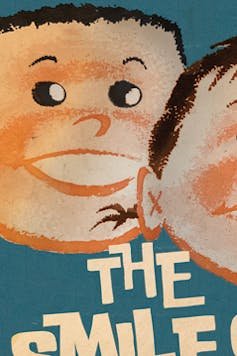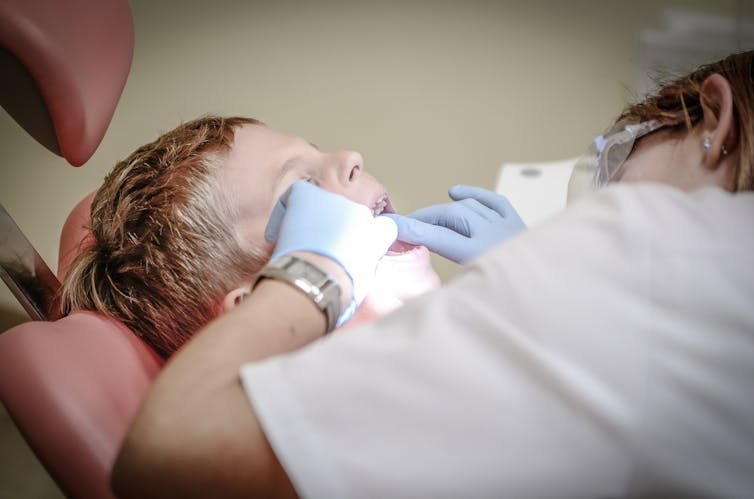Why Canada still needs a public dental health plan despite decades of medicare
Canadians pleasure ourselves on our well being-care program, specially in comparison with our neighbours to the south. But there are sizeable gaps in coverage. Almost a person-third of Canadians do not have dental insurance plan, and that quantity climbs to 50 for every cent for lessen-income Canadians. With out dental treatment, small problems like cavities can result in critical bacterial infections.
In excess of 10 per cent of Canadians are living with discomfort in their mouth. Folks visit emergency rooms for care that could be better sent in a dental office. Canadians lose tooth that could have been saved, which will make it hard to take in nutritiously and can make it extra tricky to discover do the job.
Bad oral health can also complicate or add to diabetic issues, coronary heart disease and other chronic ailments.
Why was dental care not provided in medicare?
My forthcoming guide, The Smile Hole: The Record of Oral Well being and Social Inequality, explores why dental treatment was left out of medicare. The 1964 Royal Commission on Overall health Solutions, which set the phase for medicare, suggested the institution of a dental treatment method for young children, making use of dentists and dental specialists with much less instruction known as dental auxiliaries.
The concept was to start off with young children and then broaden eligibility to older youngsters. Inevitably, older people may well be involved.

Author supplied
At the time, there was a sizeable lack of dentists in Canada and a universal software was not useful. Dentists opposed the strategy of publicly funded denticare, in particular the use of auxiliaries to take care of children.
The thought of employing auxiliaries arrived from New Zealand, wherever specifically properly trained dental nurses provided cure in educational institutions. Even with the good results of the New Zealand application, dentists did not feel that dental auxiliaries had adequate coaching to function without the need of a dentist’s immediate supervision.
Dentists believed that additional emphasis must be placed on avoidance, in particular training and water fluoridation. Quite a few had been preventing for drinking water fluoridation in their communities for more than a ten years. Water fluoridation experienced been proven to noticeably minimize cavities and nonetheless Canadians frequently rejected drinking water fluoridation in municipal referendums, major dentists to conclude that Canadians did not worth their oral wellness.
When the Healthcare Care Act of 1966 passed, dental treatment was not included. For the most element, dentists were being delighted that they could proceed their tactics without the need of point out interference.
The provinces phase in
My guide covers the history of dental courses in Canada. Even ahead of medicare, quite a several provinces supplied general public dental insurance for people on social guidance.
The Ontario dental coverage plan, for example, was recognized in 1958 to give treatment for little ones whose moms obtained condition help. In 1965, all mothers and fathers who been given loved ones gains grew to become suitable. Regrettably, quite a few individuals who lived in locations with out a dentist ended up unable to access the system.
In accordance to a examine by dental community overall health researcher James Leake, dentists also experienced problems with the plan. They disliked it mainly because it only incorporated fundamental expert services and they uncovered it professionally demanding to not supply the very best attainable assistance. Dentists also complained that folks on social guidance were being significantly far more very likely to miss out on appointments than other people.

(Pixabay)
Entry to care carries on to be a trouble these days. While all provinces provide some dental products and services to people on social help, dentists are typically reimbursed at fewer than their standard expenses, making them hesitant to provide these clients.
Dental care for children
In the several years soon after the Second Entire world War, some provinces started giving dental care to all youngsters. The most revolutionary plan was in Saskatchewan, in which dental nurses — later known as dental therapists — presented treatment in educational institutions beginning in the mid-1970s. The University of Dental Surgeons opposed the software and it was cancelled in 1987.
In other provinces, kids acquired condition-funded treatment in personal dental offices. Despite the fact that there were significant cutbacks to children’s plans in the late 20th century, Québec, Newfoundland and Labrador, Prince Edward Island and Nova Scotia still have universal dental treatment plans for little ones. In the previous 15 many years, there has been an enlargement of qualified packages aimed at very low-money small children, this sort of as Ontario’s Healthy Smiles
Increase of non-public dental insurance plan

(Pixabay)
In the 1970s, unions commenced demanding dental insurance policy. Providers that no for a longer time needed to present clinical advantages to their personnel started to offer you dental insurance plan. By 1982, close to two-thirds of collective agreements involved dental benefits and just about a person-3rd of Canadians had personal dental insurance coverage. By the mid-90s, more than fifty percent of all Canadians experienced personal dental insurance plan.
Even however dental insurance did not include all solutions, obtain to insurance diminished the desire for universal dental coverage.
Gaps in care
This has left some Canadians without dental care. In 2007, journalist Moira Welsh wrote about Jason Jones for the Toronto Star. Jones was a youthful guy, but his teeth had rotted absent. In severe suffering, he used his wife’s existence financial savings to take out them.
At the time the article was posted, Jones had just two tooth, which the dentists experienced remaining in as anchors for dentures. He could only consume tender meals, his overall look was adversely affected and he couldn’t obtain a occupation.
Jones’ tale had a joyful ending. In response to the entrance-web page tale, numerous dentists and denturists attained out and dentist Raj Singh offered him with a new smile. Regrettably, several other Canadians are not so blessed.
The foreseeable future of denticare
In 2011, the Canadian Centre for Plan Alternatives revealed the report Placing Our Income Where by Our Mouth Is, drawing awareness to the require for improved dental care. In 2019, the NDP integrated denticare in its federal election system. The Liberal governing administration promised to check out universal dental treatment in its throne speech of December 2019, and in Oct 2020, the Parliamentary Finances Business costed a program to give dental care to all Canadians with a household money of beneath $90,000, similar to what the Non-Insured Overall health Benefits system provides for Indigenous individuals.
The NDP produced denticare a important demand from customers in its 2021 electoral platform. Most just lately, the Liberal governing administration agreed to give a denticare software, starting up with young children beneath 12 and growing it till every person with a residence income of underneath $90,000 is included, with no co-payments for men and women with a relatives money of beneath $70,000.
If the Liberals adhere to as a result of on their promise, this will lessen the gaps in treatment and minimize the struggling of numerous Canadians.







